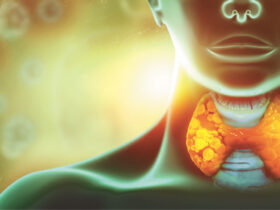 This article is dedicated to those individuals who had early childhood separation trauma, which occurs when a child is removed from his/her birth mother or when the birth mother is emotionally unavailable or physically separated from the child for an extended period.
This article is dedicated to those individuals who had early childhood separation trauma, which occurs when a child is removed from his/her birth mother or when the birth mother is emotionally unavailable or physically separated from the child for an extended period.
Young children and babies in utero are attuned to the unique characteristics of their mother, such as the sound of their mother’s heartbeat and voice. This attunement provides the initial foundation for secure bonding between mother and child. When there is a significant disruption in this bonding, such as when a young child or newborn is separated from their mother, or the mother is absent, secure attachment can become interrupted or fractured.
The discrepancies between the birth mother’s sensory cues (from prenatal and early childhood) with those of their new caretaker, can create a stress reaction (fear and overwhelm) for the child and result in developmental trauma. When this trauma happens soon after birth, an adoptee’s personality can become defined by their trauma symptoms.
A break in attachment may also take place when the mother is emotionally unavailable, due to parental conflict, addiction, a loss of another child, or when the mother becomes depressed or unable to remain in attuned bonding with her child.
Common sentiments expressed by those with developmental trauma are that they feel like something is missing, they have a hole inside of them, or their connections feel fragile and insecure.
What is Adoption/Relinquishment Trauma?
Relinquishment trauma (aka adoptive separation trauma) is one type of separation trauma that influences the way an adoptee perceives and interacts with the world. When this trauma occurs, especially early in life, it can change brain function and likely contributes to the stress related neuroinflammation that has been noted in depression, anxiety, and other mood disorders. Individuals who have experienced developmental trauma from relinquishment may interact with their world from a heightened state of awareness that is often expressed as anxiety, insomnia, irritability, fear & guarding, depression, and hypervigilance.
Developmental Trauma Disorder Symptoms
. Emotional dysregulation – Children are easily upset and reactive. They stay fearful, angry, sad, or withdrawn due to difficulty recovering from emotionally provoking situations.
. Problems with sleeping, eating, elimination, overactivity to sound and touch
. Impulsivity or extreme risk-taking
. Problems with goal-directed behaviors
. Low self-worth, feeling defective, helplessness
. Attention deficit – an inability to focus (ADD or ADHD)
. Reactivity with physical or verbal aggression
. Poor capacity for self-protection, drawn towards relationships with individuals who repeat the pattern of abandonment or poor attachment
. Difficulty in school, few peer relationships, and turbulent family relationships
. Difficult transitions and separation anxiety.
What Are Some of the Common Adverse Consequences of Adoption & Foster Care?
The newborn’s separation trauma experience is multiplied when there are numerous caregivers and placements before the child joins their adoptive family. This increases the likelihood that an adoptee will develop anxiety, depression, attachment issues, PTSD, or a developmental trauma disorder. Even if the adoptive parents are loving individuals who retrieve the newborn from the hospital, there may be much work required to address the effects of a toxic pregnancy and adoption/relinquishment trauma.
Maternal Stress May Lead to Neurodevelopmental Disorders In the Child.
Toxic pregnancy experiences are encoded in the implicit memory of the fetus. Many mothers have conflicted pregnancies filled with anxiety, shame, depression, partner conflict, and emotional turmoil from the anticipated relinquishment of their child. This early traumatic imprinting can set the stage for the adoptee to epigenetically inherit a predisposition for depression, anxiety, emotional instability, and PTSD. A growing body of evidence suggests that maternal stress creates an inflammatory response during pregnancy that is associated with an increased risk of fetal brain injury and neurodevelopmental disorders in the offspring.
Implicit Memory Stores Adoption Trauma
Traumatic memories are often implicit, or unconsciously remembered, because trauma floods our brain with the stress hormones that shut down the part of our brain that encodes memories and makes them explicitly remembered.
Our implicit memories can be like invisible forces in our lives, impacting us in powerful ways. When implicit traumatic memories are triggered, a traumatized brain often responds with fight, flight, freeze, or fawning (people-pleasing). Common scenarios of adopted persons reacting to their implicit trauma triggers include anger outbursts and defiance, provoking an argument with a loved one, running away as a teenager, or emotionally freezing when boundaries are crossed. If these behaviors are happening with your foster or adoptive child, or if they are experiencing developmental delays, anxiety, depression, or ADD/ADHD, evaluating your child’s brainwaves may provide crucial insights and actionable results that can positively influence your child’s behaviors and help to address the developmental trauma that has taken place.
EMDR and Neurofeedback Are Effective Trauma-Resolving Therapies
Many individuals with a history of developmental trauma find evidenced-based trauma resolving therapies more helpful than medications or traditional talk therapy. These include eye movement desensitization and reprocessing therapy (EMDR), hypnotherapy, brain spotting, and neurofeedback. Medication and talk therapy are often not enough to reduce neuroinflammation and rewire a traumatized brain.
How a Brain Map Can Provide Essential Information
Developmental trauma changes brain function and results in abnormal brain electrical activity, which can be detected through Brain Mapping (qEEG). These abnormal brainwaves are associated with depression, anxiety, impulsivity, transition difficulties, anger issues, developmental delays, learning/speech difficulties, etc. and may be present for months to years (sometimes decades) after the developmental trauma occurs.
Developmental trauma may also cause an individual to become emotionally stuck in the traumatic experience or at the age that the trauma happens because the trauma interferes with the brain’s developmental trajectory. Hence, adoptees are often described as “emotionally immature for their age.” MRIs of children’s brains who have experienced trauma look different than their non-traumatized peers. Without resolution of childhood developmental trauma, adoptees are likely to have an increased risk for PTSD as teens and adults. A safe and non-invasive way to rebalance these traumatic brainwaves is through neurofeedback, which retrains the brain’s electrical activity back to a state of healthy regulation.
Neurofeedback Addresses The Underlying Cause of Ongoing Low Self-Worth, Depression and Anxiety From Adoption Trauma
Neurofeedback is an all-natural, pain-free way to address developmental trauma that has virtually no side effects and produces long-term positive results. Neurofeedback has successfully addressed emotional & mental health conditions resulting from adoption trauma when other therapies have failed. qEEG brain mapping provides the data needed to create a customized neurofeedback program that corrects brainwave imbalances resulting from developmental trauma and separation issues.
During a neurofeedback session, sensors monitor brainwaves. While the client watches a video, the computer will look for the brainwaves associated with developmental trauma, anxiety, depression, anger, impulsivity, overwhelm, etc. When the computer detects these irregular brainwaves, it will adjust the video and sound in a way that causes the client to refocus their attention in a manner that produces more harmonious brainwave patterns. This can happen hundreds of times during a single session. After multiple sessions, the brain learns to maintain harmonious brainwaves on its own. As that happens, the client will see a reduction in their symptoms. The best part, results are often permanent.
Resilient Retreat, in Sarasota, Florida, studied individuals that had undergone emotional trauma. After only 20 neurofeedback sessions, there was a 52.79% decrease in depression and a 38.39% decrease in PTSD. There were also remarkable improvements in feelings of self-worth and importance, emotional awareness and clarity, and an increased sense that participants mattered to others. A separate study revealed that after 30 neurofeedback sessions, 57% of people with severe anxiety, and 45% of people with severe depression showed normal brain activity.
The Role That Nutrition & Supplements May Play in Addressing Trauma
Nutrition plays a key role in brain development and mental health. Traumatic events, and the resulting mood disorders, are associated with elevated inflammation in the brain and throughout the body. When your body is experiencing stress and trauma, or is living in the aftereffects of trauma, it needs increased amounts of several nutrients to combat this inflammation. These nutrient requirements are higher than what is typically provided through diet alone.
Omega-3 fatty acids are involved in a wide range of brain functions that are related to the formation of new brain cells (neurogenesis), neurotransmission, and neuroinflammation. Deficiencies of omega-3 fatty acids are associated with an increased risk of developing various psychiatric disorders, including depression, bipolar disorder, schizophrenia, ADD/ADHD, and autism.
Vitamin B-12 and other B vitamins play a role in regulating mood. Low levels of vitamin B-6 and folate may be linked to depression. Curcumin (turmeric), carotenoids, and EGCG appear to inhibit neuroinflammation and can be of value in reducing the resulting cognitive deficits and memory dysfunction.
How The Brain Wave Center Puts it All Together
At the Brainwave Center, we are focused on assisting everyone in recovering from developmental trauma. We have a dedicated team of professionals offering innovations in brain health through neurofeedback, transcranial magnetic stimulation, nutritional support, and trauma resolving therapies such as EMDR and Brainspotting.
Find out today how we can help you or a loved one with adoption and separation traumas. Call 941-552-4500. We offer brief, no-charge, initial consultations with our medical director.
Source: Relinquishment Trauma: The Forgotten Trauma – Marie
Dolfi.com https://mariedolfi.com/adoption-resource/relinquishment-
trauma-the-forgotten-trauma







